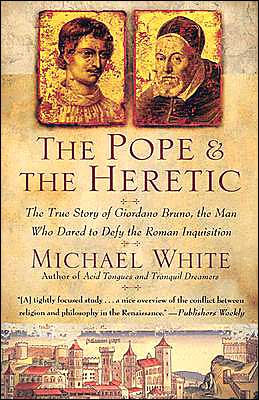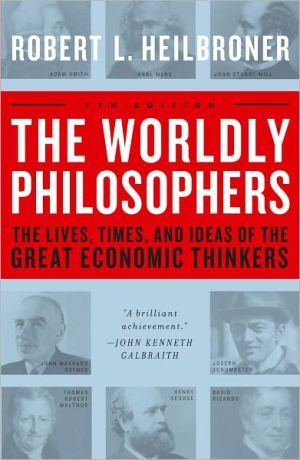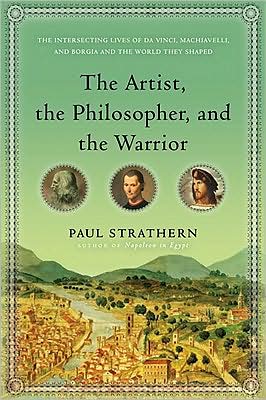The Pope and the Heretic: The True Story of Giordano Bruno, the Man Who Dared to Defy the Roman Inquisition
Giordano Bruno challenged everything in his pursuit of an all-embracing system of thought. This not only brought him patronage from powerful figures of the day but also put him in direct conflict with the Catholic Church. Arrested by the Inquisition and tried as a heretic, Bruno was imprisoned, tortured, and, after eight years, burned at the stake in 1600. The Vatican "regrets" the burning yet refuses to clear him of heresy.\ But Bruno's philosophy spread: Galileo, Isaac Newton, Christiaan...
Search in google:
Giordano Bruno challenged everything in his pursuit of an all-embracing system of thought. This not only brought him patronage from powerful figures of the day but also put him in direct conflict with the Catholic Church. Arrested by the Inquisition and tried as a heretic, Bruno was imprisoned, tortured, and, after eight years, burned at the stake in 1600. The Vatican "regrets" the burning yet refuses to clear him of heresy.But Bruno's philosophy spread: Galileo, Isaac Newton, Christiaan Huygens, and Gottfried Leibniz all built upon his ideas; his thought experiments predate the work of such twentieth-century luminaries as Karl Popper; his religious thinking inspired such radicals as Baruch Spinoza; and his work on the art of memory had a profound effect on William Shakespeare.Chronicling a genius whose musings helped bring about the modern world, Michael White pieces together the final years — the capture, trial, and the threat the Catholic Church felt — that made Bruno a martyr of free thought. Publishers Weekly What is remarkable about Giordano Bruno (1548-1600) is less his execution for heresy by the Catholic Church than the philosophy that led to his death. White, who has written biographies of Galileo, Newton and Leonardo, offers a fast-paced account of the development of Bruno's thought and the reasons why the Church considered these ideas heretical. As White points out in an account that is part history of philosophy, part biography and part church history, Bruno drew on the atomistic philosophy of Democritus, the ancient occult rituals of Egypt and other magi, and the teachings of Jesus to develop a philosophical system that challenged traditional Christian doctrines. Drawing threads from each of these disparate traditions, Bruno became the first modern pantheist, contending that every individual is a part of God and that God is in every individual. He argued that individuals could use mnemonic occult rituals to discover this unity. Bruno also believed that the universe was infinite and filled with inhabitable worlds. The philosopher was so convinced that his ideas would allow individuals to seek God that, as White demonstrates, he was mystified at being charged with heresy. Bruno influenced numerous thinkers from Galileo, Leibniz and Spinoza to Coleridge and Hegel. Although White's tightly focused study offers a nice overview of the conflict between religion and philosophy in the Renaissance, Frances Yates's splendid Giordano Bruno and the Hermetic Tradition remains the standard account of Bruno's life and work. Agents, Russ Galen and Peter Robinson. (Nov.) Copyright 2002 Cahners Business Information.
AcknowledgmentsxiIntroductionxiiiI.Prelude to a Burning1II.Religion11III.Venice31IV.Mysticism47V.The Venetian Trial85VI.Wrangles with Rome139VII.Blood on the Floor, Fire in the Soul147VIII.In the Prisons of the Inquisition155IX.The Curtain Falls179X.Encorei185Appendix IBruno's Place in History211Appendix IIA Brief Chronology of Bruno's Life213Appendix IIIBruno's Important Works215Bibliography219Useful Websites223Index225
\ Publishers WeeklyWhat is remarkable about Giordano Bruno (1548-1600) is less his execution for heresy by the Catholic Church than the philosophy that led to his death. White, who has written biographies of Galileo, Newton and Leonardo, offers a fast-paced account of the development of Bruno's thought and the reasons why the Church considered these ideas heretical. As White points out in an account that is part history of philosophy, part biography and part church history, Bruno drew on the atomistic philosophy of Democritus, the ancient occult rituals of Egypt and other magi, and the teachings of Jesus to develop a philosophical system that challenged traditional Christian doctrines. Drawing threads from each of these disparate traditions, Bruno became the first modern pantheist, contending that every individual is a part of God and that God is in every individual. He argued that individuals could use mnemonic occult rituals to discover this unity. Bruno also believed that the universe was infinite and filled with inhabitable worlds. The philosopher was so convinced that his ideas would allow individuals to seek God that, as White demonstrates, he was mystified at being charged with heresy. Bruno influenced numerous thinkers from Galileo, Leibniz and Spinoza to Coleridge and Hegel. Although White's tightly focused study offers a nice overview of the conflict between religion and philosophy in the Renaissance, Frances Yates's splendid Giordano Bruno and the Hermetic Tradition remains the standard account of Bruno's life and work. Agents, Russ Galen and Peter Robinson. (Nov.) Copyright 2002 Cahners Business Information.\ \ \ \ \ Library JournalAustralian journalist White, who has written popular biographies of Stephen Hawking, Isaac Newton, and Leonardo da Vinci, here presents the story of ex-priest and natural philosopher Giordano Bruno in the context of the Roman Inquisition. White provides a lucid description of 16th-century life-the wrong time for Bruno, an intellectual who was a blend of mystic, philosopher, and scientist who studied, explored, and lectured throughout Europe. The Catholic Church's suppression of what it deemed heretical thought led to Bruno's arrest, eight years of imprisonment and torture, and, finally, his burning at the stake. His real crime, in Rome's eyes, was his belief in "free inquiry" and spiritual exploration. White's book is exemplary for its discussions of the period's intellectual beliefs and social structure and for its vivid detail and illuminating look at Bruno's trial and subsequent death. White also captures the influence Bruno had on later followers such as Galileo, Shakespeare, and Goethe. Many more academic books examine Bruno's influence in various spheres of Renaissance thought, but this is the only biography available that is aimed at the general reader. Recommended for all libraries.-L. Kriz, West Des Moines P.L., IA Copyright 2002 Cahners Business Information.\ \ \ Kirkus ReviewsA noteworthy victim of the Inquisition—not altogether innocent, but a victim all the same—earns homage in this slender, somewhat unsatisfying biography. Giordano Bruno came of age at a time when the papacy was desperately seeking to retain power and much of Europe was desperately seeking to step free of it. "Super-intelligent and vastly erudite," as science journalist White (Acid Tongues and Tranquil Dreamers, 2001, etc.) cheerfully puts it, Bruno got himself into trouble with Church authorities while a novice seminarian; ratted on by a fellow student, he was caught reading Erasmus in the privy and summarily excommunicated. For the next 20-odd years, then, he wandered from one European capital to another, living off his wits and the largesse of reform-minded nobility. Bruno was never quite a Protestant—he examined Luther’s doctrines and found them wanting, and he could find no safe haven in Calvinist lands, where a fellow Catholic dissident had been slowly roasted on suspicion of heresy—but, especially after he began poking in Gnostic texts, he was never quite redeemable as a lapsed Catholic, either. All of which makes it a deeply curious turn of history that Bruno decided to return to Italy in the hope of mending fences with the "relatively liberal" Pope Clement VIII, who, though interested in Bruno as an intellectual specimen, nonetheless allowed the Inquisitors to have their way with him. And so they did, as White writes, torturing Bruno for six years and then burning him at the stake in Rome’s Campo dei Fiori. White’s account of these events is marred by a considerable amount of hedging and guesswork—understandable, given that the Church’s records of Bruno’simprisonment have disappeared—and by a tendency to dumb down Bruno’s doctrines (as well as to overlook key texts such as the Cabala of Pegasus). Still, he does a good job of placing Bruno’s revolt in the freethinking context of the time, of showing the injustice of Bruno’s fate, and even of showing the relevance of Bruno’s ideas to the subsequent development of higher mathematics. Solid if never thrilling—a shame, given the inherently fascinating nature of the subject.\ \








